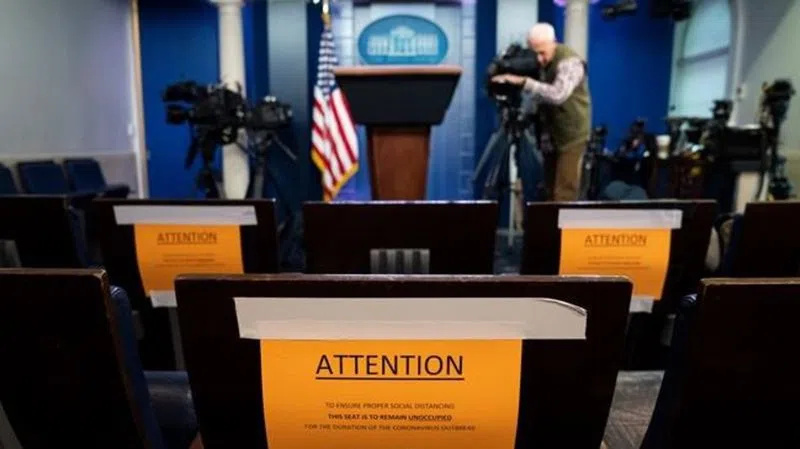
US officials: Foreign disinformation stoking virus fears
WASHINGTON — The Trump administration is alleging that a foreign disinformation campaign is underway aimed at spreading fear in the country amid the coronavirus pandemic, three U.S. officials said Monday.
On Sunday, federal officials began confronting what they said was a deliberate effort by a foreign entity to sow fears of a nationwide quarantine amid the virus outbreak. Agencies took co-ordinated action Sunday evening to deny that any such plans were put in place, as they tried to calm a nation already on edge by disruptions to daily life caused by the virus.
The three U.S. officials did not name the foreign entity they believe to be responsible. They spoke on the condition of anonymity to discuss the sensitive matter.
“Text message rumours of a national #quarantine are FAKE,” tweeted the National Security Council Sunday night. “There is no national lockdown.” The NSC encouraged Americans to follow official government guidance.


